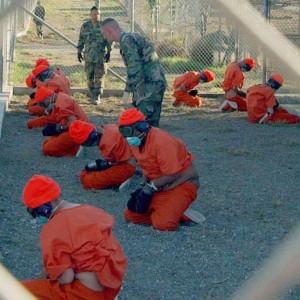crossposted from EUI Global and Transnational Perspectives Working Group
 Time for something (a bit) topical. Over on the facebook page, Anna Triandafyllidou raises an excellent question about justice, culture and the rule of law:
Time for something (a bit) topical. Over on the facebook page, Anna Triandafyllidou raises an excellent question about justice, culture and the rule of law:
What does the rule of law mean in different places and how can we transplant western systems of justice into other contexts. What does it take to inform people about their legal rights and empower them to use the in different systems of thinking and acting?
In international development circles, enthusiasm for rule of law projects has shifted from the instrumental interest of the early 1990s in making market institutions work, to more recent focus on “access to justice” and “the rule of law” as a unified, intrinsic good that deserves unique promotion. Given this trend, critical legal scholars like David Trubek and his collaborators have put the rule of law in question, pointing to the multiplicity of its agendas, the indeterminacy of the discourses, and the unpredictability of attempting to introduce “best practice” institutional forms into domestic legal traditions.The Olympics always provide a fascinating opportunity to combine excitement about internationalism with hand-wringing about complicity in local injustices. Thanks to an interesting anecdote from Keith Gessen at n+1, the Sochi games also provide a moment to think about the rule of law. Of local police who arrested him during coverage of the run-up to the games back in 2009, he writes:
…They were like police. They were alternately friendly and threatening; they knew they couldn’t keep me there forever but they were going to keep me there for a while. They were not well informed, but neither are American police, in my experience. If they differed in a serious respect from their American counterparts, it would be in their distrust of institutions—they were, for example, under the impression that journalistic materials were paid for by the highest bidder, and written to suit that bidder’s ideological position. I’m aware that this is more true in the West than most of us would care to admit, so in that sense they are right, all media is bought and paid for—but these guys literally thought they could call me on the phone and pay me to write something. I could see, in their own work, that they were not part of a strong institution, that though there were laws (which allowed them to bring me in for lacking a registration), they were supposed to be selectively deployed, and a failure to select properly could lead to consequences against which they were defenseless.”
It’s easy to read the projects that have been critical of the rule of law project as throwing the baby out with the bathwater. The desire to transform institutions so that participants can trust them, and more importantly, to give people defenses against the arbitrary exercise of power: that’s an ethical imperative that’s hard not to universalize in principle. Yet it’s possible to read these critical projects as questioning existing “rule of law” projects precisely because of lingering doubts about how well they can put those principles into practice. Not every sport, after all, is improved by hiring more refs.